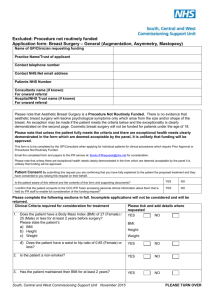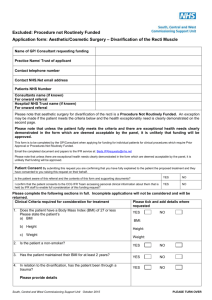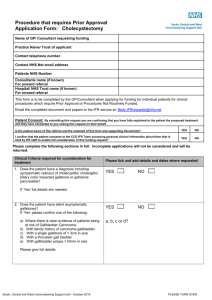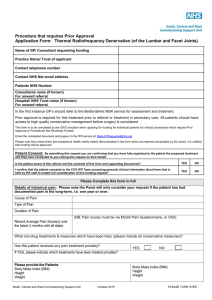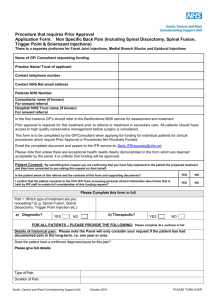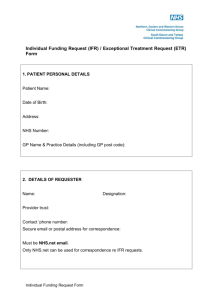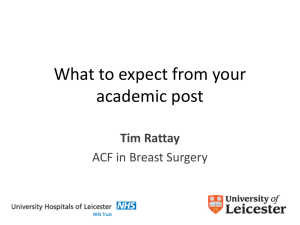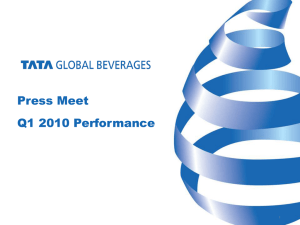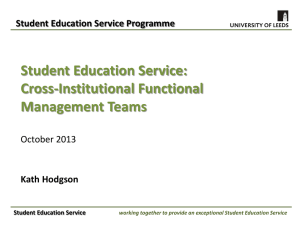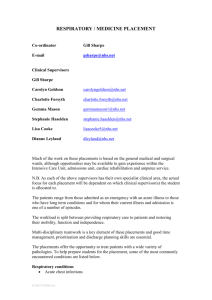Breast Reduction Form - Male
advertisement
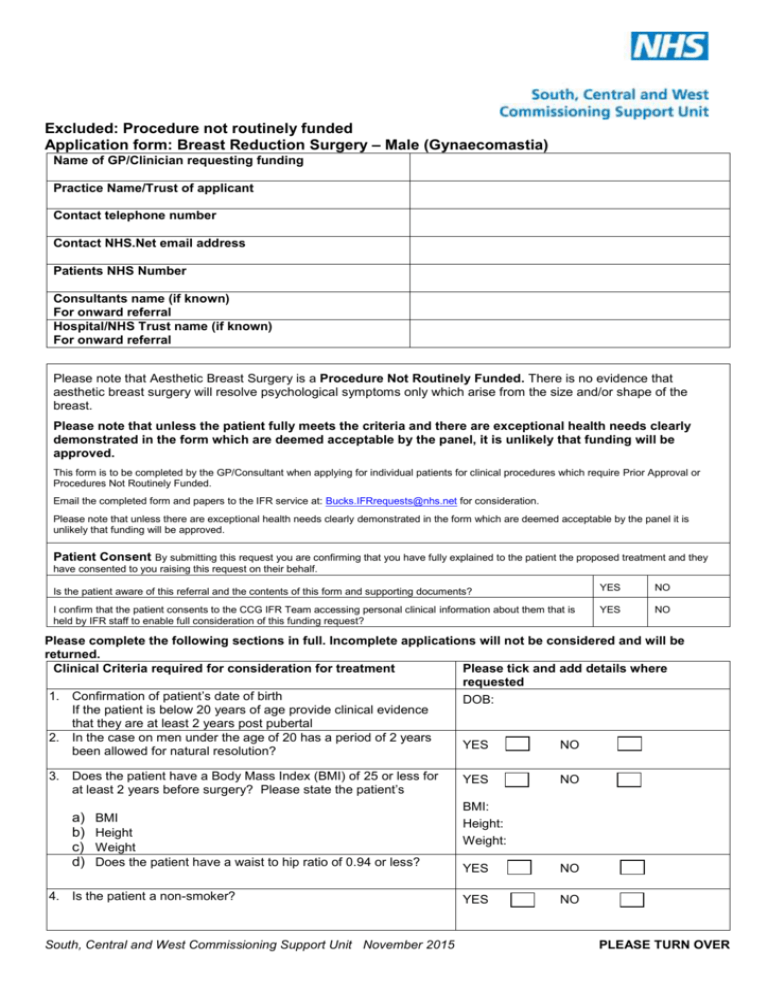
Excluded: Procedure not routinely funded Application form: Breast Reduction Surgery – Male (Gynaecomastia) Name of GP/Clinician requesting funding Practice Name/Trust of applicant Contact telephone number Contact NHS.Net email address Patients NHS Number Consultants name (if known) For onward referral Hospital/NHS Trust name (if known) For onward referral Please note that Aesthetic Breast Surgery is a Procedure Not Routinely Funded. There is no evidence that aesthetic breast surgery will resolve psychological symptoms only which arise from the size and/or shape of the breast. Please note that unless the patient fully meets the criteria and there are exceptional health needs clearly demonstrated in the form which are deemed acceptable by the panel, it is unlikely that funding will be approved. This form is to be completed by the GP/Consultant when applying for individual patients for clinical procedures which require Prior Approval or Procedures Not Routinely Funded. Email the completed form and papers to the IFR service at: Bucks.IFRrequests@nhs.net for consideration. Please note that unless there are exceptional health needs clearly demonstrated in the form which are deemed acceptable by the panel it is unlikely that funding will be approved. Patient Consent By submitting this request you are confirming that you have fully explained to the patient the proposed treatment and they have consented to you raising this request on their behalf. Is the patient aware of this referral and the contents of this form and supporting documents? YES NO I confirm that the patient consents to the CCG IFR Team accessing personal clinical information about them that is held by IFR staff to enable full consideration of this funding request? YES NO Please complete the following sections in full. Incomplete applications will not be considered and will be returned. Clinical Criteria required for consideration for treatment Please tick and add details where requested 1. Confirmation of patient’s date of birth DOB: If the patient is below 20 years of age provide clinical evidence that they are at least 2 years post pubertal 2. In the case on men under the age of 20 has a period of 2 years YES NO been allowed for natural resolution? 3. Does the patient have a Body Mass Index (BMI) of 25 or less for at least 2 years before surgery? Please state the patient’s a) b) c) d) BMI Height Weight Does the patient have a waist to hip ratio of 0.94 or less? 4. Is the patient a non-smoker? South, Central and West Commissioning Support Unit November 2015 YES NO BMI: Height: Weight: YES NO YES NO PLEASE TURN OVER 5. Has the patient maintained their BMI for at least 2 years? YES NO 6. Does the patient have Grade 3 and 4 Gynaecomastia on the Rohrich classification, where at least 500g of breast tissue could be surgically removed on each affected side, and there is associated ptosis? YES NO 7. Has the any aetiology noted in the patient’s history, related to this surgical request? If YES please give details on the investigation, and management and outcome. YES NO 8. Does the patient have any documented pain in the shoulders, neck, back and /or arm? Is the pain long-standing and of increasing intensity. Please provide details YES NO 9. Has the patient had at least 2 years of documented conservative management? YES NO YES NO YES NO Please provide all details of what treatment plan, physio advice and /or exercise regime that the patient has received for their back pain 10. Does the patient suffer from Lordotic posture (curvature of the spine)? 11. Does the patient suffer from Ulnar pain from thoracic nerve compression? 12. Exceptional health need: Please provide details SIGNATURE OF CLINICIAN ……………………………………………………………. DATE: ………………………………………………….. Exceptional Status (what makes the individual sufficiently different from the ‘usual’ in policy terms). Central to consideration of individual requests for funding is the concept of the case being exceptional. In order for funding to be agreed there must be unusual or unique clinical factors about the patient that suggest that they are: Significantly different to the general population of patients with the condition in question and likely to gain significantly more benefit from the intervention than might be expected from the average patient with the condition. However: The fact that a treatment is likely to be efficacious for a patient is not, in itself, a basis for an exception. If a patient's clinical condition matches the 'accepted indications' for a treatment that is not funded, their circumstances are not, by definition, exceptional. Social value judgments (the 'worth’ of patients) are not relevant to the consideration of exceptional status but there may rarely be exceptional circumstances where benefits may go beyond the patient (e.g. as a carer) in respect of social or health related benefits for others. Please email the completed form to Bucks.IFRrequests@nhs.net for consideration. South, Central and West Commissioning Support Unit November 2015
